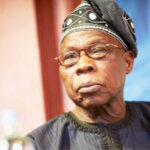Economists do not make economies; they merely attempt to explain them.
Just recently President Tinubu was reported to have remarked that he will drive through his economic policies even if it would make him unpopular.
I do not believe that Nigerians would decline to make the necessary sacrifices in order to move the country forward economically. The issue is that President Tinubu has not been able to convince Nigerians that his economic policies are worth sacrificing for. Nigerians are not convinced that President Tinubu’s economic policies are worth the sacrifices.
In less than three months after the president announced the removal of subsidies on petroleum and the merging of the foreign exchange rates as the main drivers of his economic policies, the economy has since gone into a tailspin. The rise in the price of oil in the global markets, which necessitated a corresponding rise in landing costs of the commodity, meant that the government had to restore the subsidy once again to keep the pump price of the commodity from rising domestically.
President Tinubu, give us a genuine and inclusive economic plan (II)
Employers rejecting corps members in North East — NYSC
Also, the assumption that collapsing the exchange rates will bring stability to the foreign exchange market in Nigeria has been proven wrong by the plummeting value of the naira which has now crossed the 1000 naira mark against all the major currencies.
This means that Tinubu’s economic policies have been built on mere assumptions and false premise of economic factors out of the government’s control. How can a government build a subsidy policy on the price of a commodity it does not control? How can the same government make policies on a currency outside its purview?
Against this background, the only conclusion we can reach on President Tinubu’s economic policies is that they will exacerbate rather than alleviate the economic situation in the country. We cannot as a country, hope to build our economic future on speculative economic policies; this can only mean economic suicide.
So what is to be done?
We must go back to the basics. The first action in this direction is to detach from what has become the norm of economic thinking that says we must follow the prescriptions of the International Monetary Fund and World Bank for our economic policies. That 63 years after independence we still have to rely on outside economic opinions to run our economic policies despite our wealth of economic experts is a misnomer.
In this regard, my suggestion here is that President Tinubu should convoke a national economic summit comprising all stakeholders in the national economy value chain. This should include government representatives, economists, traditional rulers, employers of labour and labour leaders, security and law enforcement. At this summit, the totality of the structure of the Nigerian economy must be thoroughly examined and an action platform for economic integration must be provided for subsequent implementation.
My recommendation here is that one of the critical areas to be examined is the current structure of the economy based overwhelmingly on rent collection from proceeds of oil.
Rent collection lures us into a sense of false complacency of having a ready source of income but prevents the benefits of economic innovation and creativity; value added, increased productivity and economic confidence. Rent collection also instils economic speculation, capital flight, corruption and economic stagnation ultimately.
It is time to consciously move out from a rent-based economy to an industrial economy.
Of course, moving out of the present rent-based economy that we operate is not an easy proposition. It entails systemic changes and sacrifices but the benefits are well worth it in the sense that it is inclusive and integrative participation of all sectors of the economy value chain. Indeed industrial economy accords all the factors that are not present in the rent-based economy we run.
So how do we implement the industrial economy?
For the industrial economy, we need to map out areas that will form extensive and integrative clusters of industrial zones in the country close to where strategic minerals are located to develop and boost manufacturing, industrial tools production, Agro-allied processing and the like.
Again as I said, for us to achieve this, we will need to be ambitious, bold and ready to break out from the dubious comforts of the current economic system we operate. We also need to pursue available options of economic partnerships with emerging economies that have been compelled by circumstances to take the path that now confronts us economically. Countries like India, Turkey, Egypt, Malaysia, Indonesia, Korea, Brazil etc.
These countries are identified as the emerging countries of the world whose collective influence in the coming years will steadily cut into the global influence of traditional powerhouses America, Britain and France. The advantages they offer us are not only due to the fact that we share similar colonial experiences, but their models of industrial development will suit our circumstances better. It will suit our purposes more to engage these countries in long-term industrial, technological and scientific partnerships that will be mutually beneficial in many ways. Depending on how we engage them we can get them to partner with us on our industrial development plans.
As a country of 200 million and the largest economy in Africa, we seem not to be leveraging on our advantages to widen the scope of our development options and opportunities in the world. As the world changes, new opportunities for economic partnerships are opening. Nigeria must key into these developments or risk being left behind. (Concluded)

 Join Daily Trust WhatsApp Community For Quick Access To News and Happenings Around You.
Join Daily Trust WhatsApp Community For Quick Access To News and Happenings Around You.


